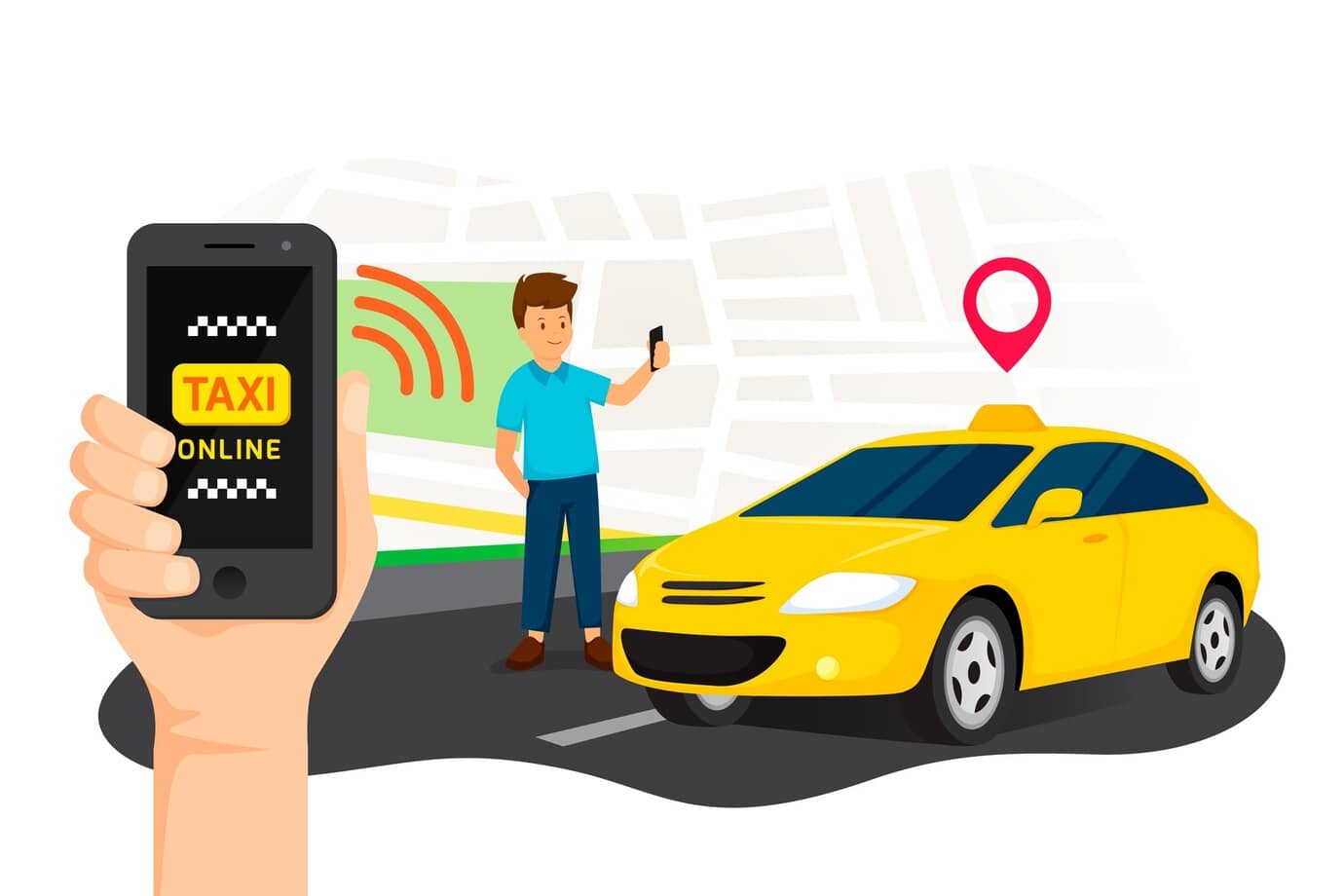The Evolution of Taxi Services in Witney: Adapting to the Rise of Ride-Hailing Apps
The transportation landscape in Witney, Oxford, has undergone significant changes over the past few years. Traditional taxi services have been a staple in the community for decades, but with the rise of ride-hailing apps like Uber and Bolt, the demand for conventional taxi services has evolved. In this in-depth analysis, we explore how taxi services in Witney have adapted, the challenges they face, and the opportunities that have emerged in this rapidly changing market.
Introduction
Witney has long been known for its reliable local taxi services, providing residents and visitors with essential transportation options. However, the advent of ride-hailing platforms such as Uber and Bolt has introduced a new dynamic to the transportation ecosystem. These innovative apps offer a level of convenience and technology-driven service that has captured the interest of modern travelers.
In this blog post, we will examine:
- How the demand for taxi services in Witney has shifted with the introduction of ride-hailing apps.
- The impact of these platforms on traditional taxi operators.
- Strategies that local taxi services can adopt to remain competitive.
- Customer behavior trends and technological advances shaping the future of transport in Witney.
Whether you’re a local resident, a regular commuter, or a business owner in Witney, understanding these trends is key to navigating the evolving world of transportation.
The Traditional Taxi Landscape in Witney
A Longstanding Legacy
For many years, taxi services in Witney have been the backbone of local transportation. Traditional taxi operators are deeply rooted in the community, known for their personalized service, local expertise, and reliability. They have built strong reputations through years of dedicated service, offering:
- Door-to-door service: Ensuring convenience for every passenger.
- 24/7 availability: Catering to the diverse needs of the community, whether for early morning airport transfers or late-night rides.
- Local knowledge: Experienced drivers who know every corner of Witney and the surrounding areas.
Key Advantages of Traditional Taxis
Traditional taxi services have several distinct advantages:
- Personalized Customer Service: Many passengers appreciate the human touch provided by professional drivers who understand local routes and can offer local insights.
- Fixed Pricing and Metered Fares: Established taxi services offer transparency in pricing, which many customers find reassuring.
- Regulated and Licensed Operations: Taxis in Witney must comply with strict regulatory standards, ensuring safety and reliability for passengers.
The Rise of Ride-Hailing Apps: Uber and Bolt
Innovation in Transportation
Ride-hailing apps like Uber and Bolt have introduced a digital revolution to the transportation sector. These platforms leverage mobile technology to offer a seamless booking experience and instant connectivity between drivers and passengers. Key features include:
- Ease of Booking: With just a few taps on a smartphone, users can book a ride instantly.
- Real-Time Tracking: Passengers can monitor their ride’s progress and receive accurate pickup times.
- Cashless Payments: Integrated payment systems eliminate the need for cash transactions, making the process more convenient.
- Dynamic Pricing: While sometimes controversial, surge pricing models can incentivize drivers during peak times.
Impact on Demand in Witney
The introduction of ride-hailing apps in Witney has led to a noticeable shift in consumer behavior:
- Increased Competition: Traditional taxi services now compete directly with Uber and Bolt, which often promise faster response times and modern technology.
- Enhanced User Experience: Customers now expect real-time tracking, quick bookings, and digital receipts, elevating the standard of service.
- Wider Reach: These apps have expanded access to transportation, attracting tech-savvy younger users who might otherwise have opted for public transport or private hire vehicles.
How Ride-Hailing Apps are Changing the Game
Shifting Customer Expectations
With ride-hailing apps setting new industry standards, customer expectations have evolved. Passengers in Witney now look for:
- Convenience: The ability to book a ride anytime, anywhere, without needing to call a dispatcher.
- Transparency: Upfront pricing, detailed ride information, and clear driver profiles.
- Efficiency: Reduced wait times and optimized routing that minimizes delays.
These expectations have forced traditional taxi operators to re-evaluate their service models. Many are adopting new technologies, such as mobile booking apps and real-time dispatch systems, to better compete in a digital-first market.
Technological Integration
To meet the demands of modern consumers, traditional taxi services are integrating technology in several ways:
- Mobile Apps: Many taxi companies in Witney are now offering their own booking apps, allowing customers to schedule rides with ease.
- Digital Payments: Moving towards cashless transactions improves speed and convenience.
- Fleet Management Software: Advanced systems help optimize routes, track driver performance, and manage bookings efficiently.
- Customer Feedback Systems: Implementing digital feedback channels enables taxi services to continuously improve their service quality based on real-time customer insights.
Benefits and Drawbacks for Traditional Taxi Services
Benefits:
- Enhanced Operational Efficiency: Technology improves dispatching, reducing wait times and increasing the number of rides per day.
- Better Customer Engagement: Digital platforms provide direct channels for communication, promotions, and loyalty programs.
- Increased Market Reach: Online presence and mobile apps help traditional taxi services attract a broader customer base, including tech-savvy younger riders.
Drawbacks:
- High Initial Investment: Upgrading technology and developing mobile apps require significant investment.
- Learning Curve: Both drivers and administrative staff need to adapt to new systems and workflows.
- Competition Pressure: The presence of global ride-hailing giants creates constant pressure to innovate and improve service levels.
The Future of Taxi Services in Witney
Adaptation and Innovation
The future of taxi services in Witney will likely be defined by those who can successfully integrate new technologies while preserving the core values of personalized service and local expertise. Here are some future trends:
- Hybrid Models: Traditional taxi companies might adopt hybrid models, offering both standard and premium services tailored to different customer segments.
- Collaboration with Ride-Hailing Platforms: Some taxi services are exploring partnerships or white-label solutions that allow them to tap into the digital ecosystem without losing their brand identity.
- Sustainability Initiatives: With rising concerns about the environment, many taxi services are moving towards electric or hybrid vehicles, reducing their carbon footprint while appealing to eco-conscious customers.
- Enhanced Customer Experience: Continuous improvement in user experience through data-driven insights will play a pivotal role in retaining loyal customers and attracting new ones.
Customer Loyalty and Trust
One of the most significant advantages traditional taxi services in Witney have is their longstanding relationship with the community. Many customers appreciate:
- Trust and Reliability: A history of consistent service builds a level of trust that new ride-hailing apps may struggle to match.
- Personal Touch: Knowing the driver and receiving personalized service can be a deciding factor for many passengers.
- Local Expertise: Familiarity with local routes and traffic patterns often results in faster, more efficient travel than the algorithms used by ride-hailing apps.
By leveraging these strengths and combining them with modern technology, traditional taxi services can maintain a competitive edge in the evolving market.
Conclusion
The demand for taxi services in Witney is evolving rapidly with the rise of ride-hailing apps like Uber and Bolt. Traditional taxi operators must adapt to changing customer expectations, embrace technology, and continue to provide the personalized service that sets them apart. By integrating modern digital solutions while maintaining a strong local presence, taxi services in Witney can not only survive but thrive in an increasingly competitive market.
Whether you’re a local resident seeking a reliable ride, a visitor in need of airport transfers, or a business traveler looking for a comfortable long-distance journey, the future of transportation in Witney promises to deliver a blend of tradition and innovation. The ongoing evolution of the taxi service landscape ensures that customers will always have a variety of options to choose from—each tailored to meet the dynamic needs of modern travel.

